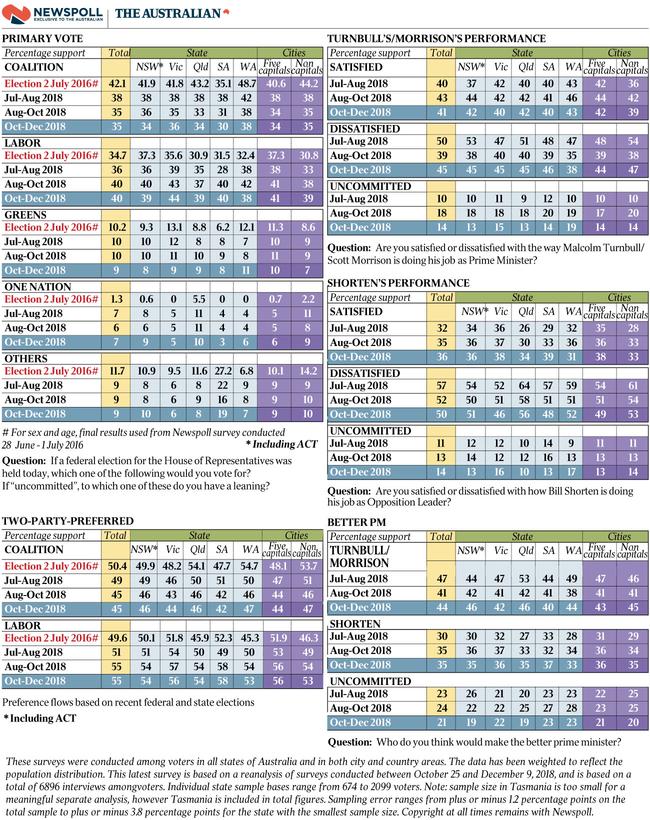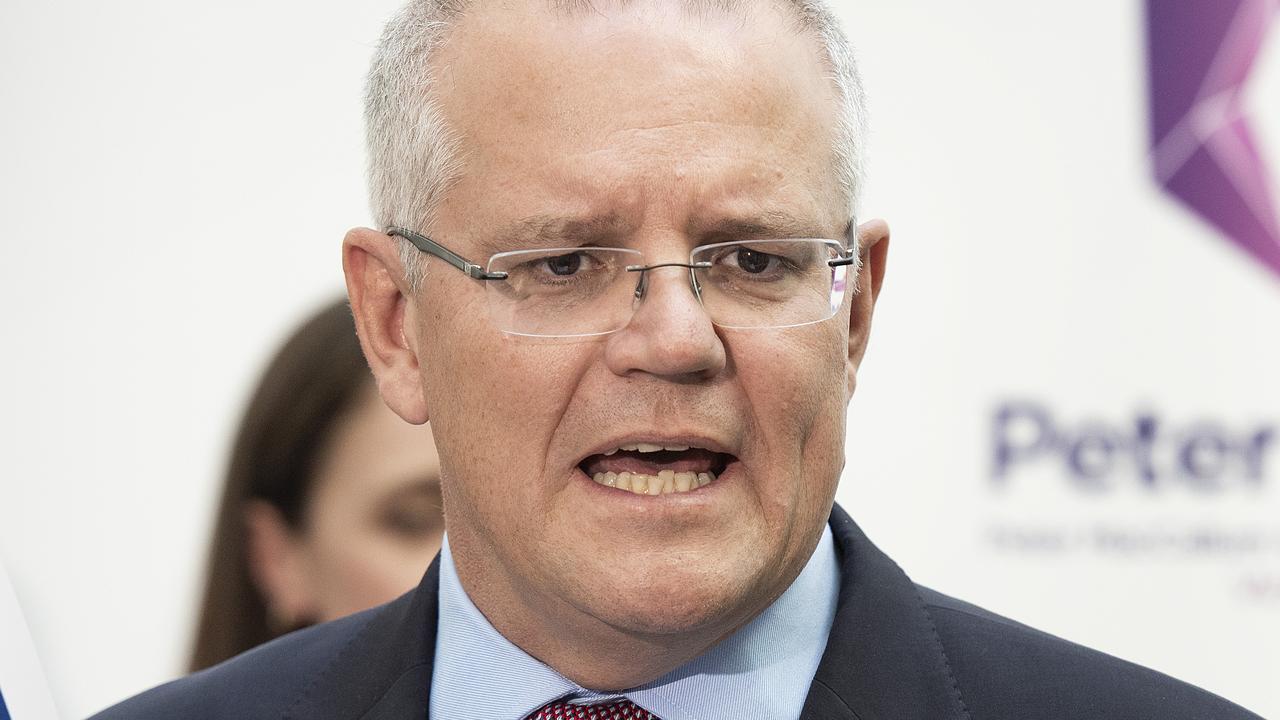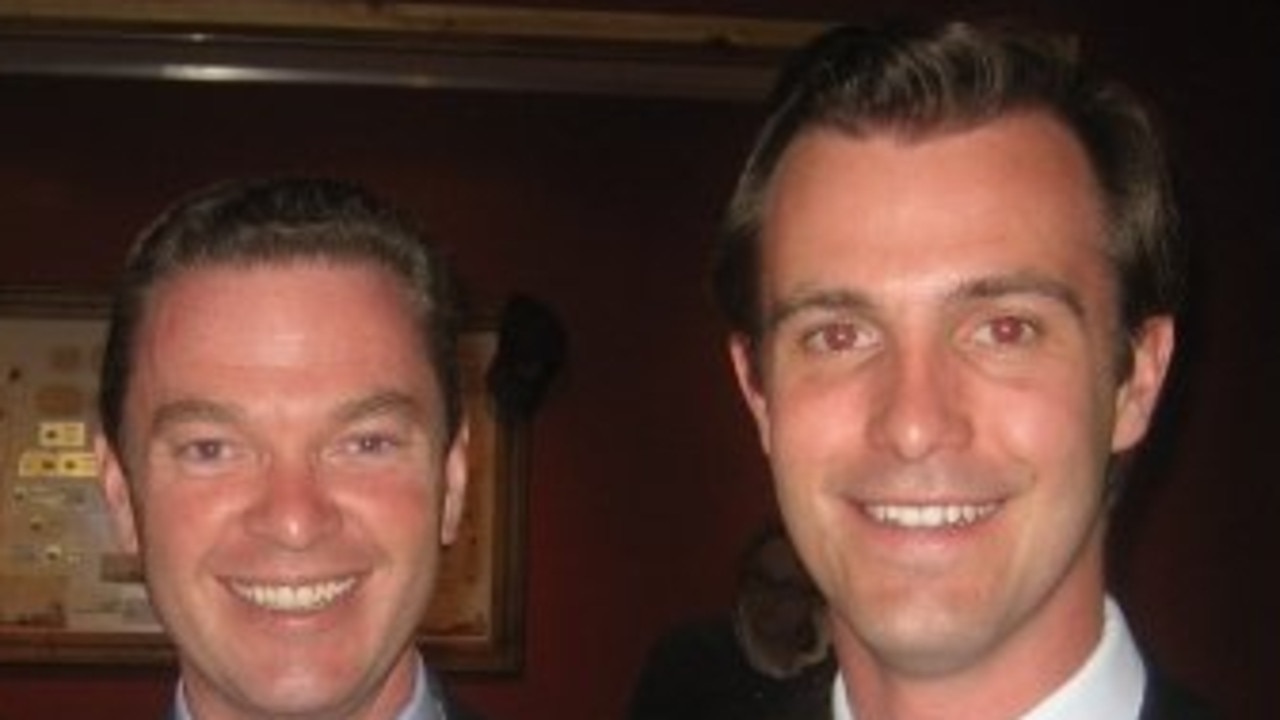Newspoll: Coalition carnage as voters turn to minors
The Liberal National Party’s hold on marginal seats is at risk, according to Newspoll.
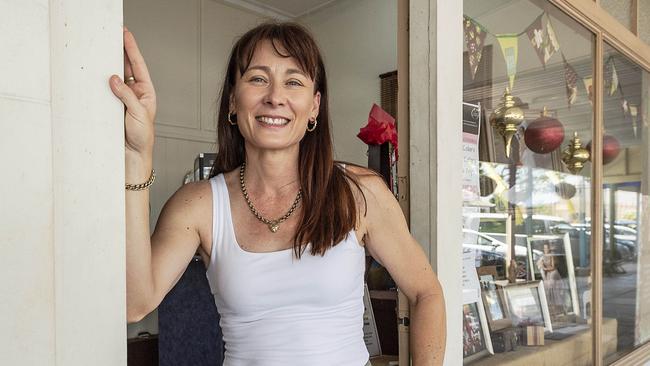
The rise of minor parties in regional Queensland has put at risk the Liberal National Party’s hold on marginal seats, coming under pressure from Labor, One Nation and Katter’s Australian Party.
The Morrison government’s path to re-election next year hinges on defending seats such as Flynn, which is held by three-term Nationals MP Ken O’Dowd, and potentially bagging new seats in Queensland such as Herbert, centred on Townsville.
Flynn is vast and diverse. Its main centre is Gladstone, an industrial city that is staunchly Labor, and extends along the coastline from Bundaberg to Rockhampton, west to the coalmines around Emerald, and south to Gayndah.
Gayndah local Annemaree McGilvery, whose husband, Robin, has shifted his vote to One Nation after a long-standing affiliation with the LNP, said politicians were too eager to change their policies in the face of criticism. “They should just say what I tell my kids: I’m here to be your parent, not your friend,” she said.
One Nation won the most votes of any party in Gayndah at last year’s state election.
Unlike Labor candidates who have scored political points by attacking Pauline Hanson, the ALP’s Flynn candidate, Zac Beers, is engaging with frustrated One Nation voters in a bid to win their preferences.
“People are frustrated with politics generally and, rightly or wrongly, they associate that with the major parties, and as a result people are looking to alternatives,” Mr Beers said. “The conversation has really been about listening because a lot of their frustration stems from the feeling that politics today doesn’t represent them.”
One Nation’s preferences in Flynn split 50-50 at the 2016 election, despite the minor party directing away from Labor.
Other minor parties targeting the seat include Clive Palmer’s United Australia Party and Bob Katter’s Australian Party.
Support for candidates other than Labor and the Coalition has soared from 6.9 per cent in 2007 to 29.6 per cent in 2016, first at the expense of Labor and then draining votes from the LNP.
Mr Beers, an Australian Workers Union organiser, won a 5.5 per cent swing in Flynn at the 2016 election, slashing Mr O’Dowd’s margin to 1 per cent. This included a 4.5 per cent swing in Gayndah.
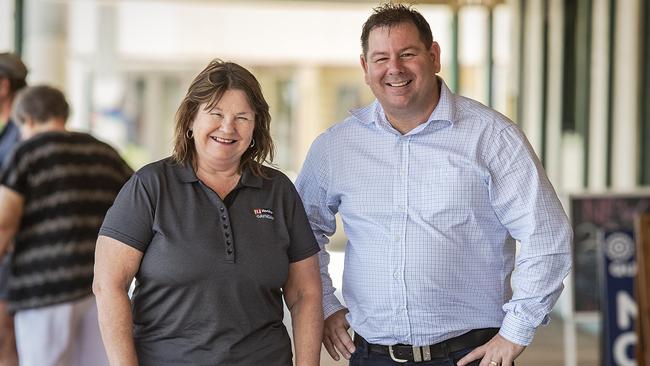
The Coalition would lose eight seats in Queensland on a swing of 4 per cent, including regional seats held by Mr O’Dowd, George Christensen, Warren Entsch and Michelle Landry.
Gayndah realtor Peter Mattson, an undecided voter, feared an economic downturn unless Canberra ended its leadership instability. “As a country we want stability — whether it’s a job or a wife or a prime minister — otherwise you don’t know where you stand, it drains confidence and the spiral leads to recession,” he said.
Mr Mattson also worried a Shorten government would be controlled by corrupt union bosses more focused on doling out “jobs for the boys” than serving the country.
“And Bill Shorten is still so unpopular, so how long will it take before they decide to get rid of him and find someone else?” he said.
Tamara Ohlsen, a mining engineer from Emerald, said she was disappointed the Liberals had “turned to the Left” but was unsure about One Nation.
“I like some things about Pauline Hanson, but the party itself is a f..king mess,” she said.
She predicted many rural voters would support Mr Palmer, who has used his personal wealth to mount a major billboard and broadcast advertising campaign in rural seats.
Gayndah jeweller and photographer Stacey Duncan, an undecided voter who recently watched parliamentary question time in a doctor’s waiting room, said she was appalled by the MPs’ behaviour.
“If I had shown that to my seven-year-old nephew, he would have thought they were being terribly misbehaved.
“I couldn’t even hear what they were saying, and they were being so disrespectful to the chairperson,” she said. “If that’s how they carry on all day, I can’t imagine who is running the country.”
